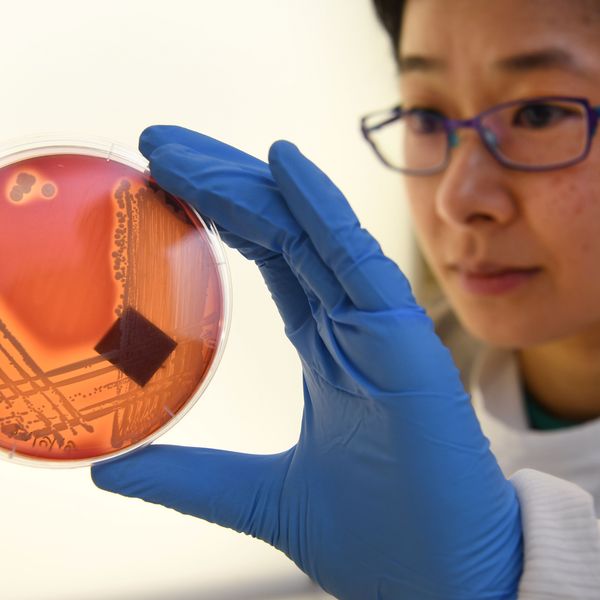Ignoring the concerns of scientists, doctors, food safety advocates, environmentalists, and more than half a million U.S. citizens, the Environmental Protection Agency (EPA) on Wednesday issued their final approval for what has been dubbed Dow AgroSciences' 'Agent Orange' herbicide.
In a press statement, the agrochemical giant said that their Enlist Duo herbicide is now registered for use on Dow Enlist-brand genetically engineered corn and soy crops, which the U.S. Department of Agriculture (USDA) approved less than a month ago.
The herbicide is made from a combination of glyphosate, the main ingredient in Monsanto's Roundup, and 2,4-D, a component of the toxic Agent Orange herbicide used during the Vietnam War, which has been linked to numerous health issues including increased risks of non-Hodgkin's lymphoma, Parkinson's and immune system problems.
Groups say that decision will only embolden campaigns to "promote organic, regenerative agriculture over an industrial model that is destroying our health, and polluting our environment."
Organic advocates and environmental groups were quick to condemn the move, saying that the use of Enlist Duo will threaten the health of humans and environment, promote the expanded use of genetically modified seeds (or GMOs) and spur the growth of more herbicide-resistant weeds.
By the USDA's own estimate, approval of the herbicide and crop system will increase the annual use of 2,4-D from 26 million pounds to 176 million pounds.
"The EPA's approval of this highly toxic herbicide flies in the face of scientific evidence that not only are these chemicals toxic to humans and the environment, but that the escalation of their use will only lead to the evolution of a whole new crop of herbicide-resistant superweeds," said Ronnie Cummins, international director of the Organic Consumers Association.
Scientists and food safety experts have long warned that such herbicides will only worsen the problem of "superweeds" while at the same time creating a more toxic and less sustainable agriculture system. As the agrochemical giant itself noted, "tens of millions of acres of American farmland are infested with glyphosate-resistant weeds, and the problem has grown worse every year." Weed infestation doubled between 2009 and 2013, it says.
"The EPA has failed in its mission to protect the environment, just as the biotech industry's toxic, chemical-intensive industrial agriculture has failed to deliver on its promises of higher yields and higher profits for farmers, and fewer poisons for the environment," Cummins continued.
Further, conservation watchdog groups charge that the EPA is "ignoring its legal duty" to protect key animal species in their expeditious approval of "two known dangerous pesticides."
"Once again the EPA has turned a blind eye to endangered species, clean water and human health in its apparently endless desire to placate multinational pesticide companies."
--Brett Hartl, Center for Biological Diversity
"This was an unbelievably foolish decision -- Enlist Duo will harm dozens of endangered species, and is another nail in the coffin for the monarch butterfly," said Brett Hartl, endangered species policy director at the Center for Biological Diversity (CBD). "Once again the EPA has turned a blind eye to endangered species, clean water and human health in its apparently endless desire to placate multinational pesticide companies."
Violating the Endangered Species Act, the EPA failed to consult with the U.S. Fish and Wildlife Service on the negative impacts to such species before issuing their approval, Hartl added. CBD estimates that the approval now puts over 20 endangered species in harm's way.
Over half a million people submitted public comment this summer urging the EPA not to green light the pesticide mix. In the past two weeks alone an additional quarter of a million people signed a White House petition calling on President Obama to block the approval.
Condemning the federal office for "turn[ing] its back on those it purports to protect --the American people and our environment," the Center for Food Safety is vowing to take legal action "to stop the commercialization of these dangerous crops."
Meanwhile, Organic Consumers Association and other groups say this will only embolden their state-by-state campaigns to pass mandatory GMO-labeling laws and other agriculture policies "that promote organic, regenerative agriculture over an industrial model that is destroying our health, polluting our environment, and has been identified as one of the leading causes of global warming."


